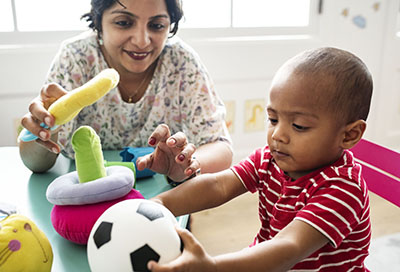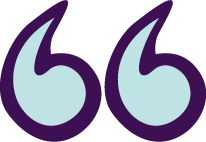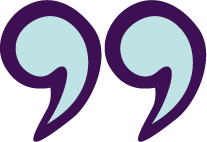Learning how to support children with additional needs or disability in early childhood
settings helps to ensure that all children in your care are supported and included.
There are many resources and training opportunities available for early childhood educators in Victoria.
Disability Standards for Education
The Disability Standards for Education set out the rights of students with disability, including:
- Not discriminating against students with disability
- The reasonable adjustments that Australian law requires education providers to make for students with disability
- How to ensure reasonable adjustments are fair to individual students with disability
- Working together with the student, their family and/or other associates
Learn more about the Disability Standards for Education
There are free e-learning courses on the Disability Standards for Education across all levels of education.
Accurate and current information on disabilities and medical conditions
It’s important for educators to maintain up-to-date information about different disabilities and medical conditions to ensure all students are supported appropriately. There are several resources available to help with this.
The Royal Children’s Hospital (RCH) fact sheets
RCH Melbourne has developed Kids Health Info fact sheets to increase understanding of a child’s medical condition and/or treatment. All medical conditions and disabilities are listed alphabetically on the website linking to the relevant fact sheets.
Disability-specific learning opportunities
AllPlay Learn
AllPlay Learn provides practical online information and courses to help create inclusive education environments for children with disability. The educators’ section on the AllPlay Learn website includes information about different disabilities, strategies to help children with developmental challenges, and resources for early childhood educators. AllPlay Learn was developed by Deakin University in partnership with the Victorian Department of Education.
Early Childhood Education and Care Settings | AllPlay Learn
Amaze
Amaze offers educator training to support autistic students within their educational setting. Workshops can be tailored to your needs, with consultative services, links and assistance upon course completion.
Attention Deficit Hyperactivity Disorder (ADHD)
OnLineTraining works with school sectors across Australia to create courses that support children and young people with special educational needs. They offer a range of free e-learning courses, including one on ADHD.
Free e-learning courses – ADHD
Autism Awareness Australia
‘Navigating Autism: The Early Years’ empowers early childhood educators to confidently and effectively
support autistic children and their parents and carers. Designed with the help of parents, professionals and other educators, it contains free, evidence-based information and resources that can be accessed anytime, anywhere.
Calmer classrooms – A guide to working with traumatised children
This booklet assists kindergarten, primary and secondary teachers, and other school staff in understanding and working with children and young people affected by trauma, published by the Child Safety Commissioner.
Centre for Community Child Health – Royal Children’s Hospital
The Centre for Community Child Health supports the health and wellbeing of children aged 0 to 8.
They offer a range of online professional development and training courses, including one on how to
build and sustain helpful relationships with parents.
Centre for Community Child Health training
Cerebral Palsy Education Centre (CPEC)
CPEC provides professional learning for educators of students with cerebral palsy, offering online learning modules and workshops.
Early Childhood Australia
Early Childhood Australia is the peak early childhood advocacy organisation advocating for quality
outcomes in early childhood settings. They have a well-established Learning Hub offering a variety of
courses including how to support children with Autism and children with behaviour support needs.
Early Childhood Australia Learning Hub
Early Years Connect
The Queensland Early Years Connect website offers online modules, webinar recordings and
information sheets to help early childhood educators support children with complex additional needs to
participate fully in early childhood education.
Early Years Connect online modules
Emerging Minds
Emerging Minds works to support the mental health and wellbeing of infants, children, adolescents and
their families. They offer free online courses and resources that cover child development, child mental
health and disability, trauma, loss and grief.
Victorian Department of Education
The Victorian Department of Education offers a free course for early years professionals called Early
Childhood Inclusion for Children with Disability available through their eLearning Portal.
Early Childhood Inclusion for Children with Disability eLearning Portal
Yellow Ladybugs
Yellow ladybugs has video resources on supporting autistic girls in early childhood education.
Communication resources and equipment
Specialist Equipment Library
Yooralla’s Specialist Equipment Library operates as part of the Inclusion Support Program. The library
loans a variety of equipment not usually found in child care settings to help enable greater inclusion.
Examples include portable ramps, standing frames, hoists, slings, change tables, specialised furniture,
communication cards and inclusion toys.
Vision Australia
Families and educators can join the Vision Australia Feelix Children’s Library to borrow special braille
and tactile storybook kits.
Additional support
Inclusion Support Program
The Inclusion Support Program is a nationally funded program to identify and address barriers to
inclusion in child care settings. Information about eligibility and supports is available in the Inclusion
Support Guidelines.
The Victorian Inclusion Agency can also assist.
Victorian Inclusion Agency | Access Inclusion Support
Kindergarten Inclusion Support (KIS)
KIS is funded by the Victorian Department of Education specifically for kindergartens. Available supports
include specialist training and consultancy, minor building modifications and additional staff (usually
kindergarten assistants).
There are two types of programs:
- Disability – for children with disability or developmental delay and high support needs), and
- Complex medical needs – for children with complex medical needs and high levels of health care support but who do not have disability
Kindergarten inclusion for children with disabilities
Pre School Field Officer Program
The PSFO service supports the participation of children with additional needs in kindergarten programs. This includes children enrolled in Four-Year-Old, Three-Year-Old Kindergarten and Early Start Kindergarten.
Preschool Field Officer program | vic.gov.au
School Readiness Funding Menu
The School Readiness Funding Menu by the Victorian Department of Education includes detailed
information about how to apply for School Readiness Funding. It covers these priority areas
of communication (language development), wellbeing (social and emotional), access and inclusion.




